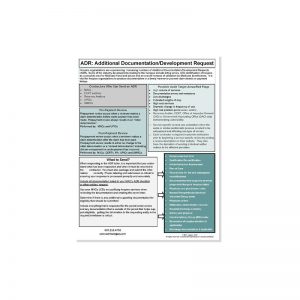The National Association for Home Care & Hospice (NAHC) expressed strong support for the Centers for Medicare & Medicaid Services (CMS) with the goal of the hospice Special Focus Program (SFP) as a means to “identify hospices as poor performers, based on defined quality indicators”. But…NAHC in collaboration with other Home Health and Hospice State Associations submitted…
The National Association for Home Care & Hospice (NAHC) expressed strong support for the Centers for Medicare & Medicaid Services (CMS) with the goal of the hospice Special Focus Program (SFP) as a means to “identify hospices as poor performers, based on defined quality indicators”.
But…NAHC in collaboration with other Home Health and Hospice State Associations submitted comments to CMS expressing concerns with the 2024 Home Health proposed rule related to the hospice SFP algorithm methodology that appears to be flawed and needs to be fixed to ensure accuracy and fairness.
“The centerpiece of the proposed hospice proposed rule is the Special Focus Program that sets standards for enhanced oversight of certain hospices, a measure that NAHC helped to champion before Congress. We sincerely hope that CMS refines those standards expeditiously so that we can see the benefits of that oversight as soon as possible. Hospice patients deserve only the best care.”
~ NAHC President William A. Dombi ~
NAHC has called for collaboration between CMS and the existing SFP Technical Expert Panel (TEP) to enhance the SFP algorithm methodology before its scheduled implementation on January 1, 2024.
NAHC offered a series of detailed concerns:
- Condition-Level Deficiencies and Substantiated Complaints: NAHC stresses that condition-level deficiencies (CLDs) and substantiated complaints should be scaled according to the number of beneficiaries a hospice serves. This scaling is critical to ensure equitable comparison across providers of varying sizes. NAHC questioned why CMS chose not to follow the TEP’s recommendation in this regard.
- Disputed CLDs and Past Due Surveys: NAHC expresses reservations about including condition-level deficiencies that were cited when the due process was unavailable. The assertion from NAHC is that utilizing such data would be inequitable. NAHC also mentions concerns about the growing number of past due surveys, which they attribute to staffing shortages and resource challenges related to the COVID-19 pandemic.
- Double Counting of CLDs and Complaints: Hospices accredited by accrediting organizations (AOs) may face the same complaint being surveyed by both the AO and State agency, leading to potential double counting of substantiated complaints. Similarly, if the same CLDs are cited by both entities, they may be doubly counted. NAHC urges CMS to establish a mechanism to prevent this duplication.
NAHC has proposed the implementation of a nationwide pilot phase of the revised algorithm. Hospices would then be provided interim reports of their performance ranking under the updated SFP algorithm metrics.
This phased approach might necessitate a delay in implementation, requiring CMS to issue a new proposed rule incorporating the modified algorithm and allowing stakeholders to provide additional feedback.
In conclusion, while NAHC supports the overarching goal of the SFP to enhance hospice care quality, NAHC calls for revisions to the algorithm and implementation of a comprehensive pilot phase to ensure accuracy in identifying underperforming hospices. NAHC’s concerns revolve around the scaling of deficiencies and complaints for fairness, accounting for due process of disputed data, addressing past due surveys, and preventing double-counting of deficiencies and complaints. These recommendations aim to refine the SFP algorithm, creating a more effective program that ultimately benefits hospice providers and their beneficiaries.
Read NAHC’s full comments on the hospice provisions of the 2024 home health proposed rule HERE.

